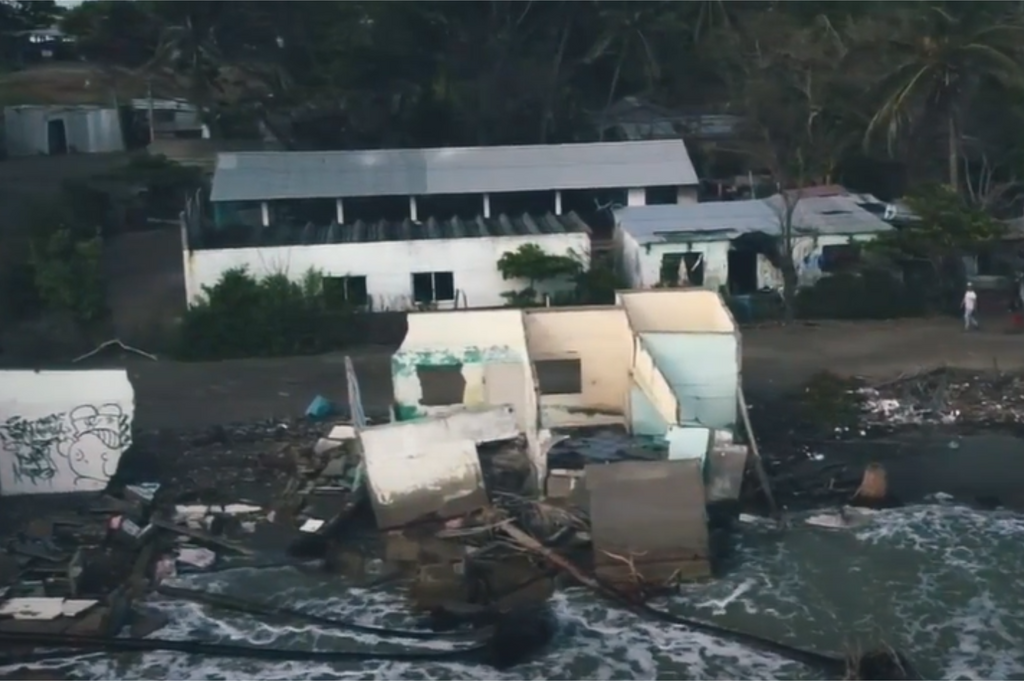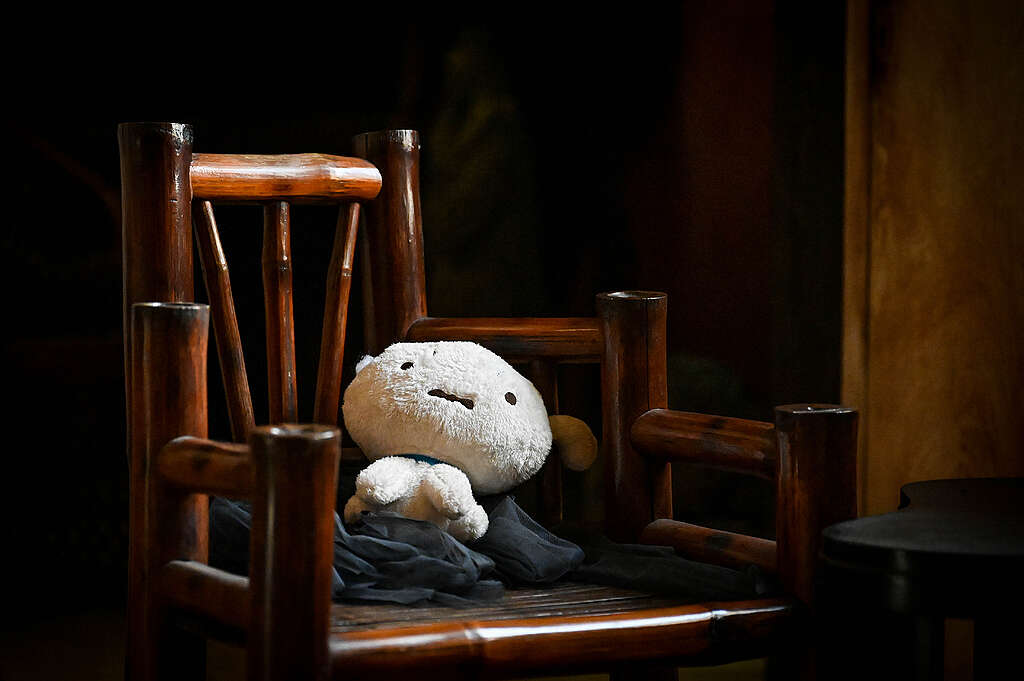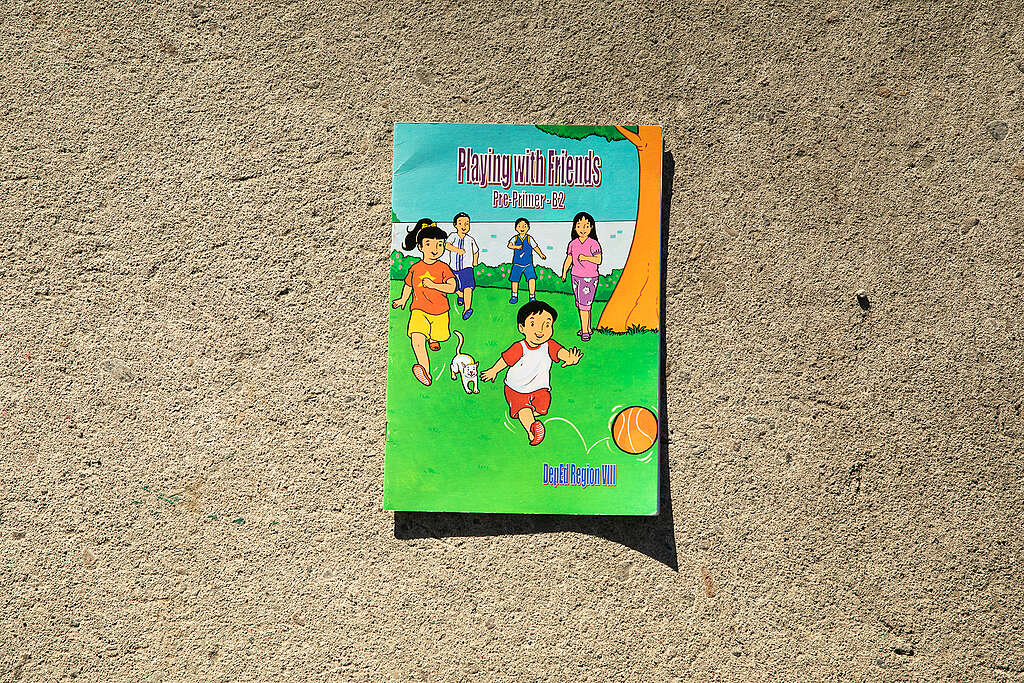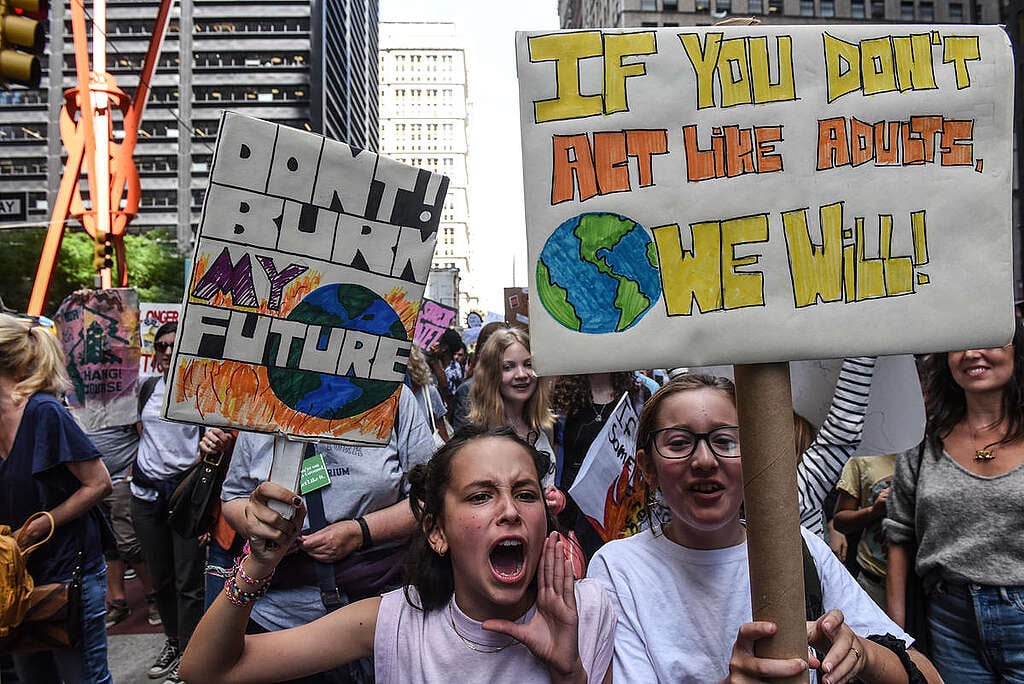Children are more vulnerable to the worsening climate crisis.
As sea levels continue to rise and global temperatures reach record-breaking highs, more and more children experience climate disasters that negatively impact their childhoods. They are forced out of their homes, away from the comforts of their communities. They are compelled to stop schooling due to unforeseen calamities, and they end up lagging in their education.
The UN's Children's Climate Risk Index (CCRI) Report says that there are 1 billion children who are at "extremely high risk" from the impacts of climate change. These impacts threaten their rights to health, safety, education, and well-being.
Emily's Prayer for a Safer Home
For some coastal areas like El Bosque, Tabasco, Mexico, sea level rise isn't just a chilling projection. It is their reality. Their community witnessed homes and schools being washed away by the rising seawater, and despite the urgent need for them to relocate to a safer area, the government still hasn't taken concrete action to move them.
Emily is one of the many children whose school was washed away by the sea, and with the seawater still rapidly rising, Emily's neighborhood faces constant threat and worry for their safety as more houses are turn into rubble while they await relocation.

El Bosque has been calling for their government for a safer relocation, but until now, they're left with only promises and slow response from the authorities. On top of the delayed adaptation measures, their government continues to drill more fossil fuels and build new pipelines to import gas in the Gulf of Mexico, where El Bosque, Tabasco is located, further exacerbating what is already an alarming situation for their community.
Despite this, Emily remains hopeful and prays that they would find a safer resettlement.
Shane's Memory of a Stolen Childhood
Extreme weather events brought on by climate change deprive children of a comfortable and happy childhood filled with happy memories.

For Shane, who experienced the wrath of Super Typhoon Haiyan at 12 years old, her childhood innocence was robbed from her. Her teddy bear that is supposed to give her comfort is now a reminder of the disaster that forced her to handle the responsibility of recovery and rebuilding their home.
Beyond physical loss, Shane's childhood is evidence of how devastating extreme weather events can leave a tragic imprint on a child's mental health and well-being. A study by The Lancet, a science and health journal, showed that Filipino children are among the most stressed in the world by climate change.
Teacher Queenee's Worry for Her Student's Education
The climate crisis worsens the educational system in countries like the Philippines where many students are already struggling to attend classes daily, impacting their learning and reading skills. In an effort to cope up, teachers like Queenee use a Kindergarten book for the remedial classes of her Grade 11 students.
But with sudden events such as typhoons, flooding, and extreme heat becoming more frequent in the country, it creates a more unsuitable learning environment for the students and schools are forced to suspend classes.

"Classes have to be suspended because electric fans can't alleviate the heat inside the classrooms anymore, especially during a brownout. So that absence or class suspension, even just for one day affects a child's language acquisition," Queenee laments.
The Department of Education has turned into remote learning as a response. While this can be a good alternative to adapt, this doesn't completely resolve the dilemma as there are some students, especially those coming from far-flung areas, who are struggling to access resources needed for distance learning.
The stories of Emily, Shane, and Queenee prove how the youth bear the brunt for the climate damages caused by oil and gas companies. You can read their full stories in the People's Museum of Climate Justice.
Join our call for climate justice
Despite the worsening climate crisis, young people hold on to hope and are fighting back. They refuse to let the climate crisis define their future and continue to step up to explore solutions and lead the calls for justice.

We can help write a better narrative for them by amplifying their voices. Join us in demanding climate polluters to stop drilling and start paying for the damage they've caused to the people and the planet.
Dara Clarysse Golpe is a Social Media Consultant for the People's Museum of Climate Justice, a team based in Greenpeace Philippines.






